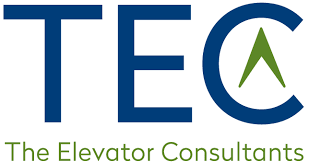The lifespan of an elevator depends on many different factors, but on average, elevators can last at least 25 years. At some point, a building will need to consider if it’s time for elevator modernization. Elevator modernization consists of updating or replacing existing equipment and parts such as controllers, machines, and doors (among others). There are many reasons building management may choose to do an elevator modernization; however, the decision is usually driven by poor elevator performance and escalating repair costs. Furthermore, the elevator service provider might recommend an elevator modernization in cases where the elevator is past its life cycle, is difficult to service, requires obsolete parts, and/or the company simply does not have a technician that can work on the older equipment.
Typically, the first step a building may take for an elevator modernization process involves requesting a proposal from the current elevator service provider. The proposal should include:
- scope of work,
- a detailed list of new equipment,
- expected timeline, and
- other important details.
At this stage, building owners should pay close attention to the proposal and be sure that it includes everything needed for the job. Likewise, the proposal mustn’t contain unnecessary or hidden costs.
Another standard practice is to collect bids from a few different elevator service providers for the elevator modernization project. Although it takes longer to go through the bid process, the extra step of due diligence is likely to lead to a more informed decision. Once building management has several elevator modernization proposals, they should review them for consistent scopes of work (line item by line item). However, the bids will likely not be the same, and there may be some back and forth with the elevator service providers until the proposals are comparative. The building owner should also be mindful of non-elevator work.
The main challenge here is that most building owners are not elevator experts. There are technical specifications and jargon that only an experienced elevator veteran would know. Without the full elevator knowledge, it is unclear for buildings to determine what is missing and what is needed to match the building’s requirements. The building owners should be asking questions like:
- Is a door package included?
- Will the machine be reused or refurbished?
- Will the essential equipment be proprietary or non-proprietary?
- Is the non-elevator work included in fire life safety, general construction, and electrical?
And many other questions to meet the requirements of the building. The building owners need to understand the requirements of the building elevator system for a successful elevator modernization implementation.
If the proposals overlooked any of these elements, the elevator companies should add them and submit revised proposals. Once the building gets the updated proposals, they can compare them again to see which one would be the best fit. But, as mentioned previously, without having elevator expertise, most people will have a hard time understanding these proposals, let alone identifying what is missing. Nevertheless, the building has specific goals for the elevator modernization project, including meeting a budget and timeframe.
Because a successful elevator modernization project requires so many operational decisions, building management may want to enlist the help of an elevator consultant to decipher the proposals and discuss the options. Alternatively, an elevator consultant can be brought on to oversee the entire elevator modernization project from beginning to end. Elevator consultants are valuable because they protect the building by ensuring a proper elevator modernization based on its requirements and budgets, including the non-elevator work. An elevator consultant will conduct a site visit to determine the work needed for the modernization as discussed with the building, prepare a scope of work or an elevator modernization specification, bid out the project, discuss the bids and the budgets, and monitor the elevator modernization itself. An elevator consultant can help buildings get the results they’re looking for: that the job is done right, on time, and at a fair price. Project success includes checking that the scope of work and specifications are met, budgets are in line, and schedules are on target to implement a new elevator.
Overall, an elevator modernization is a large project with several nuances and ramifications that need to be addressed upfront for a timely and cost-effective project. Hiring an expert has been deemed a key component in having an elevator modernization go smoothly. An elevator consultant will guide a building through the numerous technical steps professionally, resulting in a fully modernized elevator that should operate as it’s supposed to for many more years to come.
